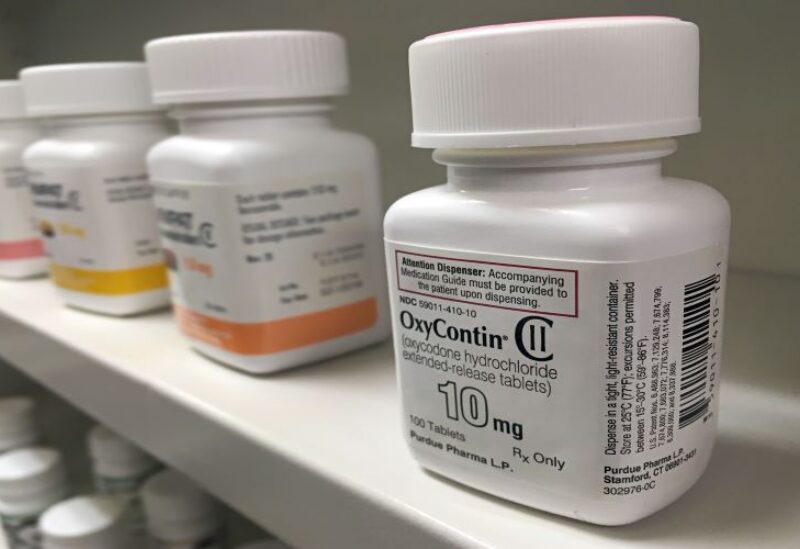
Bottles of prescription painkiller OxyContin
A federal court invalidated a $4.5 billion deal that legally safeguarded members of the Sackler family accused of fueling the U.S. opioid epidemic, threatening to derail the company’s bankruptcy restructuring, OxyContin producer Purdue Pharma LP.
In a written judgment issued on Thursday, U.S. District Judge Colleen McMahon stated that the New York bankruptcy court that authorized the deal lacked the jurisdiction to offer the Sacklers the legal protection against future opioid lawsuits that was the cornerstone of Purdue’s restructuring.
A federal court invalidated a $4.5 billion deal that legally safeguarded members of the Sackler family accused of fueling the U.S. opioid epidemic, threatening to derail the company’s bankruptcy restructuring, OxyContin producer Purdue Pharma LP.
In a written judgment issued on Thursday, U.S. District Judge Colleen McMahon stated that the New York bankruptcy court that authorized the deal lacked the jurisdiction to offer the Sacklers the legal protection against future opioid lawsuits that was the cornerstone of Purdue’s restructuring.
In exchange for donating $4.5 billion to settle widespread opioid lawsuits, the Sacklers insisted on the legal shields, known as nondebtor releases since they protect parties who have not filed for bankruptcy themselves.
The Sacklers threatened to withdraw from the settlement if legal safeguards were not secured.
The Sacklers’ representatives did not immediately reply to a request for comment late Thursday.
In a statement, Attorney General Merrick Garland expressed his satisfaction with the decision.
“The bankruptcy court lacked the jurisdiction to deny victims of the opioid crisis the chance to sue the Sackler family,” Garland ruled.
McMahon’s decision was also lauded by Washington State Attorney General Bob Ferguson, who had protested to Purdue’s restructuring.
“There can’t be two kinds of justice: one for average Americans and another for billionaires,” Ferguson remarked.
“I’m willing to go all the way to the Supreme Court if necessary to establish meaningful responsibility for the Sackler family.”
More than 95 percent of creditors, mostly plaintiffs suing Purdue and the Sacklers, voted to accept the drugmaker’s restructuring.
However, eight states, Washington, D.C., Seattle, and over 2,600 personal injury plaintiffs voted against Purdue’s restructuring, according to McMahon. The United States Justice Department’s bankruptcy monitor and the United States Attorney’s Office in Manhattan also protested.
McMahon questioned Purdue’s distribution of more than $10 billion to the Sacklers during a roughly decade-long period before the company’s bankruptcy filing.
The Sacklers have been accused, which they deny, of authorizing the financial transactions in order to keep the money from being drained in future lawsuits against Purdue. According to the Sacklers, much of the money went to taxes and investments rather than their pockets.
McMahon’s decision came just a week after the Metropolitan Museum of Art and the Sacklers, who have long been famed for their charity, announced an agreement to remove the Sackler name off seven exhibition spaces.
Purdue declared bankruptcy in September 2019, citing 3,000 lawsuits alleging the business and Sackler family members of contributing to a public health catastrophe that has claimed the lives of about 500,000 people since 1999.
In the lawsuit, the corporation and family members were accused of aggressively selling OxyContin while downplaying its addiction and overdose hazards. The charges have been refuted by the corporation and family members.
Early in Purdue’s legal reorganization, U.S. Bankruptcy Judge Robert Drain in White Plains, New York, decided to postpone litigation against the corporation and Sackler family members, who had not filed for Chapter 11 protection themselves.